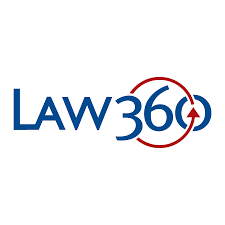

By Jeff Overly, Law360 (June 30, 2023, 1:02 PM EDT) — The U.S. Supreme Court on Friday told the Fourth and Eleventh circuits to revisit closely watched whistleblower cases targeting units of Allergan and Abbott Laboratories, teeing up tests of the high court’s new ruling on the meaning of intentional fraud under the False Claims Act.
In an order list, the justices wiped out defense wins in Sheldon v. Allergan at the Fourth Circuit and Olhausen v. Arriva Medical at the Eleventh Circuit, sending each case back to the appellate courts “for further consideration in light of United States ex rel. Schutte v. SuperValu ,” which the high court decided on June 1. That decision held that the FCA’s standard for scienter, or knowledge of wrongdoing, includes a defendant’s “subjective beliefs” about compliance practices being flawed, even if those compliance practices were “objectively reasonable.”
“The U.S. Supreme Court has vindicated our client’s right to continue prosecuting his claim that these companies fraudulently billed Medicare,” Podhurst Orseck PA partner Stephen F. Rosenthal, plaintiffs counsel in the case against now-defunct Arriva, told Law360 on Friday.
Arriva was acquired a decade ago by Alere Inc., now part of Abbott, and the high court “has made clear that they cannot escape liability by hiding behind after-the-fact interpretations of federal laws that Mr. Olhausen alleged they knew they were violating when they submitted claims for payment,” Rosenthal added.
Callow and Utter LLC managing partner Joseph M. Callow Jr., plaintiffs counsel in the Allergan case, also welcomed Friday’s development, saying, “We are pleased with the Supreme Court’s order today,
and we look forward to litigating this matter in the near future.”
In the Fourth Circuit case, whistleblower Deborah Sheldon accused Allergan unit Forest Laboratories LLC of defrauding Medicaid by misreporting drug pricing information. A district court sided with Allergan, and a Fourth Circuit panel affirmed, leading to en banc review that ended in a stalemate and vacated the panel decision.
In the Eleventh Circuit case, whistleblower Troy Olhausen accused Abbott unit Arriva Medical of several types of regulatory violations, including failures to obtain required signatures from Medicare
beneficiaries. A district judge tossed the complaint for lacking specifics, but the Eleventh Circuit affirmed based on a lack of scienter.
After the circuit court rulings, Sheldon and Olhausen petitioned the high court and raised issues comparable to those decided in the SuperValu case, which was paired with a case called Proctor v. Safeway before the high court. Their petitions had effectively been in a holding pattern awaiting the high court’s decision.
The 9-0 decision was at least partially a win for the plaintiffs bar and the U.S. Department of Justice; they successfully asserted that FCA cases must consider whether someone truly believed they were acting lawfully, as opposed to merely considering whether someone’s conduct could be viewed as lawful.
Defense lawyers, however, have been parsing the decision for crumbs of consolation. Among other things, they have seized on the decision’s discussion of scienter, which includes actual knowledge, deliberate ignorance and reckless disregard.
The decision found that reckless disregard includes being “conscious of a substantial and unjustifiable risk” that billing claims are false. That finding could be consequential, because reckless disregard is often easier to prove than actual knowledge or deliberate ignorance.
In the aftermath of the decision, for example, defendants in various cases have begun contending that reckless disregard now has a three-part test requiring evidence that someone was aware of a compliance risk, that the risk was substantial, and that the risk was unjustifiable, yet submitted noncompliant claims anyway.
Representatives of Allergan and Abbott had no immediate comment Friday.
The cases are U.S. ex rel. Sheldon v. Allergan Sales LLC, case number 22-593; Olhausen v. Arriva Medical LLC et al., case number 22-374; U.S. ex rel. Proctor v. Safeway Inc., case number 22-111; and U.S. ex rel. Schutte et al. v. SuperValu Inc. et al., case number 21-1326, all before the Supreme Court of the United States.
–Editing by Marygrace Anderson.
Update: This story has been updated additional information as well as comment from plaintiffs
counsel in the Allergan and Arriva cases.